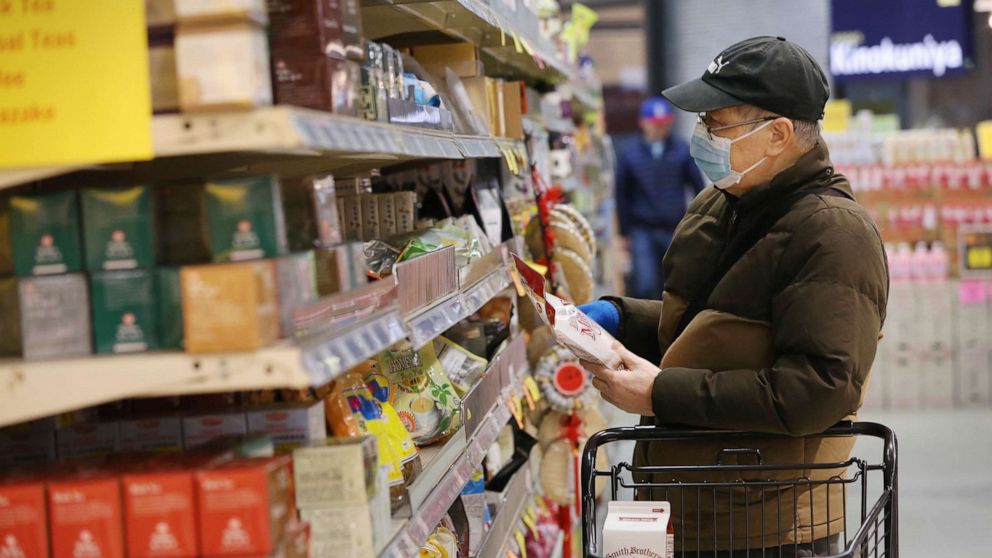
How you may utilize a rule from the Depression era to lower the cost of your alcohol
On Friday, September 28, 2018, a worker moves along an aisle at the warehouse of the Southern Glazer’s Wine and Spirits LLC distribution center in Louisville, Kentucky, in the United States.
According to a person familiar with the situation, federal regulators want to claim that America’s largest alcohol distributor is unfairly charging wine and spirits by utilizing a seldom-enforced Great Depression-era statute.
According to the source, a Federal Trade Commission complaint against Southern Glazer’s Wine and Spirits is imminent. Its goals include ensuring small businesses have an equal chance to compete with large chains and cutting consumer prices, specifically for alcohol.
The case, which might be dangerous, would be the latest attempt by regulators under the Biden administration to demonstrate that they are acting to cut costs and challenge powerful corporations. Additionally, it would be the most recent bold move by FTC Chair Lina Khan, who is now investigating a Microsoft contract with an artificial intelligence firm and recently led the agency to outlaw the majority of companies from utilizing noncompete agreements.
Alcohol may be the newest front in the antitrust war. The biggest distributor of wine and spirits in the US is Southern Glazer’s, with operations in 44 states and a headquarters in Miami. The family-run business distributes everything from Yellow Tail wine to Jim Beam bourbon and Grey Goose vodka.
antitrust laws from 1936 were abandoned
According to the source, the FTC lawsuit—which Politico has previously reported on—could be filed in the coming weeks and would be based on the 1936 Robinson-Patman Act. This Depression-era legislation forbids suppliers from giving bigger chains more discounts than they may provide smaller retailers.
Put another way, mom-and-pop shops need to be eligible for discounts offered to big-box chains as well.
In an era when A&P and other chains dominated the market with cheaper pricing, the antitrust law at the time was intended to help local grocery stores thrive.
But given that the Robinson-Patman Act hasn’t been consistently used since the late 1980s, an FTC complaint against Southern Glazer’s today would undoubtedly raise controversy. Actually, since the agency reached a settlement with the spice manufacturer McCormick in 2000, this would be the first time it has been used.
Since 1936, it has been a law. It remains a valid statute in force. We uphold the law,” the source said to CNN, adding that some smaller businesses have had difficulty surviving since the law hasn’t been enforced. “You can’t stay in business if you can’t compete on price, not even close.”
The argument goes that it is unfair to smaller retailers and their customers if a large alcohol distributor gives deeper discounts to retailers like Walmart or Target. Additionally, consumers suffer from the lack of availability and the fact that the larger chains are now less competitive on pricing if those stores don’t exist.

Could shoppers be harmed by enforcement?
However, opponents of the Robinson-Patman Act contend that enforcing it would hurt consumers by forcing large chains to hike prices as they would no longer be able to obtain the substantial discounts they currently receive.
Critics claim that giving preference to small firms over large ones would hurt customers.
Alden Abbott, a former FTC general counsel during the Trump administration, warned in a Forbes op-ed last month that the FTC should consider the “major downside” of Robinson-Patman Act (RPA) prosecutions.
Abbott, a senior research scholar at George Mason University’s Mercatus Center, argued that “a major RPA lawsuit could discourage business discounting at a time of public concern over excessively high prices, even though it might be cloaked in ‘fairness.'”
The Robinson-Patman Act “appears antithetical to core antitrust principles,” and Congress should “finally repeal” it, according to the 2007 report of the Antitrust Modernization committee, a bipartisan committee appointed by Congress.
“If Robinson-Patman is successfully brought back, prices will probably go up, not down,” stated Ed Schwartz, Reed Smith’s antitrust partner.
That is difficult to verify, though. Since the law hasn’t been applied in many years, a large portion of the discussion is theoretical.
Senior counsel of the nonpartisan anti-monopoly advocacy organization American Economic Liberties Project, Lee Hepner, stated, “There is no empirical evidence that enforcement of the Robinson-Patman Act raises consumer prices.”
Contrary to the claims made by those opposed to enforcing Robinson-Patman, Hepner contended that customers benefit from the significant discounts that major chains receive.
“Dominant corporations use price discrimination as a tool to enhance their market power,” the speaker stated. “Higher consumer prices are a result of that market power.”
The National Grocers Association, a national trade association for independent grocers, claimed that the FTC’s enforcement of the Robinson-Patman Act is “long overdue.” Chris Jones is the organization’s principal government relations officer and counsel.
Main Street Competition Coalition leader Jones said, “For decades, antitrust enforcers have ignored this statute, allowing dominant firms to use their size and market power to crush main street businesses and increase consumer costs.” The Main Street Competition Coalition is an industry group that advocates for the 1936 law’s enforcement. “Restoring true price competition throughout the economy through the enforcement of the Robinson-Patman Act will benefit consumers by giving them more options and lower prices for everyday essentials.”
A significant antitrust test case
Southern Glazer’s and the FTC both declined to respond.
But according to a person with knowledge of the situation, Southern Glazer offers discounts to all stores in areas where state law permits.
The insider went on to say that there are no ongoing hidden discounts and that a smaller store might not receive the same price as a larger store if they are unable to accept the same volume.
There is no assurance that the Federal Trade Commission will bring legal action against Southern Glazer’s. The agency has not yet done so. The FTC commissioners could still decide to oppose the lawsuit.
However, if the lawsuit is successful, it will serve as a test case, and a complicated one at that.
The fact that the alcohol business is already subject to extensive governmental regulation is one complicated element. Who is allowed to sell what alcohol to whom is governed by a complex web of state laws. This could turn the dispute into one of state sovereignty, with firms arguing that consumers will suffer as a result.
A lawsuit against Southern Glazer’s, according to Reed Smith attorney Schwartz, would signal a change in the FTC’s enforcement strategy under Khan away from consumer welfare rules, which nearly invariably favor competition through reduced prices.
“Try to level the playing field for small retailers who are trying to compete” would be the aim here, he stated. “You could view it as a challenge to suppliers as much as it is to the mega-retailers.”

Other stories
-
A massive police operation brought an end to Columbia University’s encampment. How some schools get around that is as follows:
-
Despite working, they still require assistance to provide for their families.
-
Gospel Artist KODA Has Passed Away
-
I took the wheel of the furious Toyota Tacoma hybrids. This Is Why I’d Continue Using The Less Expensive TRD Off-Road
-
The Baltimore bridge crash raises issues with the supply chain.






